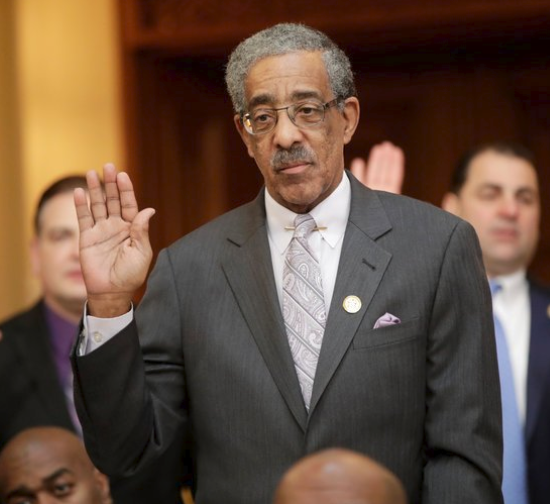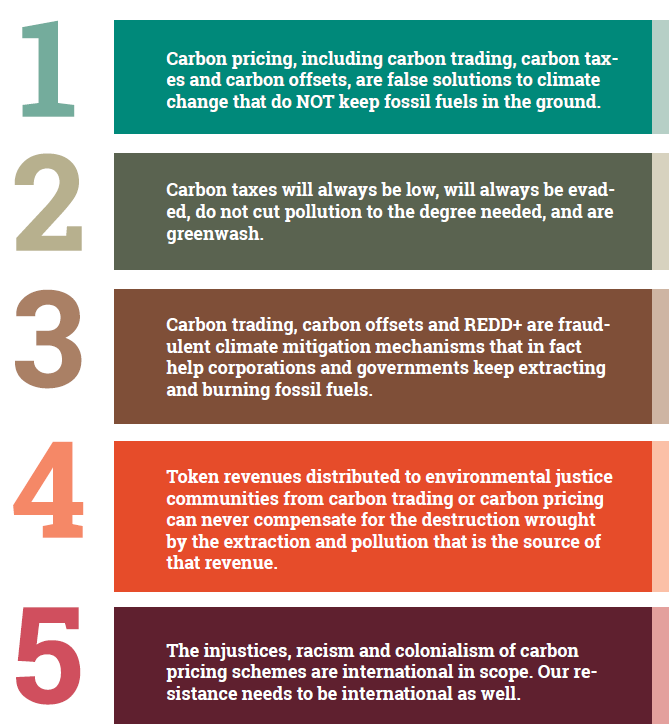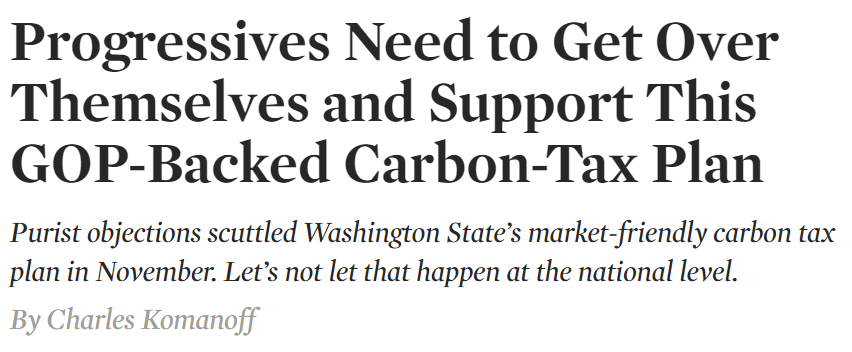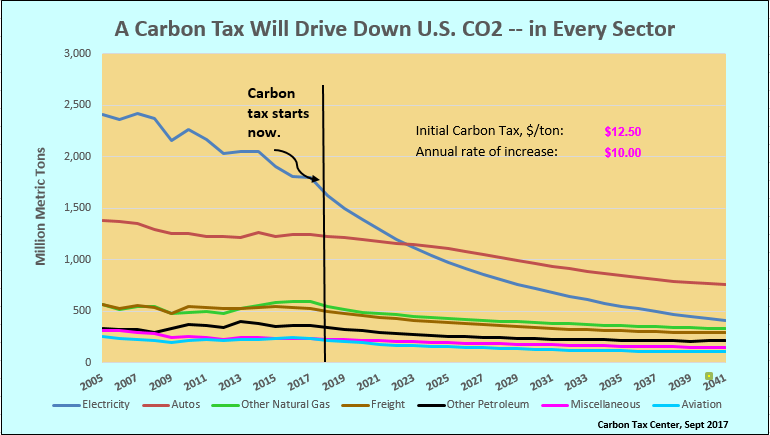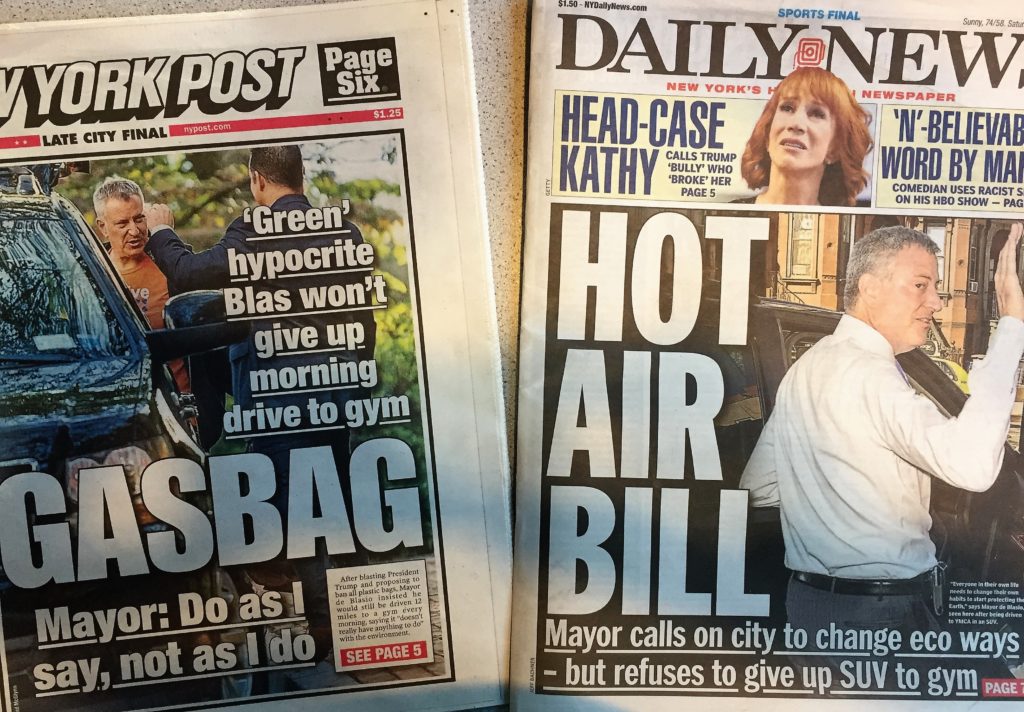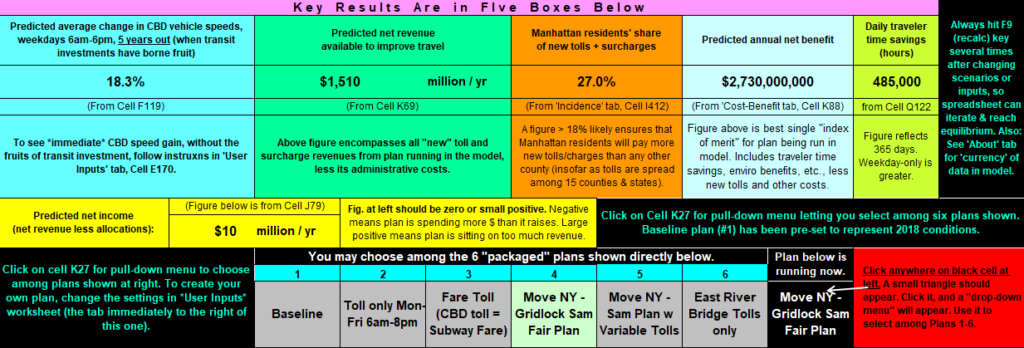I’m rarely without one of my own bikes. But lately, dicey weather and scheduling issues led me to add Citibikes to the mix. And during each hassle-free ride I marveled anew that since 2013 the City of New York, home to some of the world’s most contested streets, actually cleared out space for the bicycle docks and racks.
The man who faced down the skeptics — of whom there were many — and saw bike-sharing through? Michael Bloomberg, during his third and final term as mayor.
Earlier this year, Albany legislators wrote language into the state budget that in 2021 will launch the world’s most ambitious congestion-pricing plan in NYC. As visitors to this site know, I fought for this groundbreaking program, as pamphleteer and traffic-modeler. I recognize that congestion pricing’s passage was made possible by a host of advocates in and outside government. High among them was Bloomberg; his bold though unsuccessful push for traffic tolls a dozen years ago laid the ground for this year’s win.
As mayor, Bloomberg instituted a slew of measures, many of them controversial, that have made New York more healthful and prosperous. All deserve to be counted as green achievements because they have attracted and kept businesses and residents in our dense and efficient, hence low-carbon city. He also, in 2007, called for a U.S. carbon tax, becoming perhaps the most prominent American to back straight-up carbon taxing rather than the convoluted cap-and-trade schemes beloved of mainstream environmental groups back then. More recently, Bloomberg’s post-mayoral contributions to the Sierra Club’s “Beyond Coal” campaign helped shove scores of carbon-spewing coal-fired power plants into early retirement — a certified climate win.
Knowing all this, you might ask why, in an interview with Inside Climate News, I chose to pour cold water on the idea of Bloomberg as a 2020 climate candidate . . . going so far as to call him “the perfect climate candidate for 2007.” (My epithet wrapped ICN’s story yesterday, Bloomberg Is a Climate Leader. So Why Aren’t Activists Excited About a Run for President?)
Why? Because, as I told ICN, I believe that extreme wealth stands in the way of the radical transformations the climate emergency requires.
If, as I believe, rapid and full decarbonization must entail fundamental changes in how humans live and work and organize, then everyone’s lives must transform. It won’t wash for the super-wealthy to go on leading lives of unbounded privilege — luxuriating on their yachts, globetrotting among their mansions, helicoptering from one island or summit gathering to another — burdened only by carbon fees on their huge footprints.
Bloomberg is of that class. That he has greater awareness than his peers is to his credit. But so long as he wields and personifies extreme wealth, he cannot be the avatar of transmuting it into productive use.
In the U.S., new work by the U-C Berkeley economists Emmanuel Saez and Gabriel Zucman suggests that taxes on extreme wealth and financial transactions, supplemented by increases in estate taxes, marginal income tax rates, capital gains and corporate taxes, will be able to generate trillions of dollars from the wealthiest American households. Those revenues, not carbon tax revenues, must be the funding source of the vast amounts needed to pay for the Green New Deal energy programs.
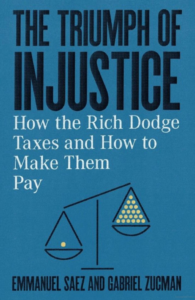
Unfortunately for Bloomberg’s presidential candidacy, fundamental climate solutions can’t co-exist with extreme wealth.
What I meant by my “Bloomberg 2007” comment is that, with climate damage already skyrocketing and emissions still rising, we’ve shot past the point when a carbon tax could have been the primary policy engine to slash U.S. and other nations’ carbon emissions quickly enough to keep the rise in global temperatures under the presumed 1.5ᵒC ceiling.
That wasn’t so in 2007, the Carbon Tax Center’s inaugural year as well as when Mike Bloomberg vaulted to the front of the valiant band of political leaders and advocates calling for robust carbon taxing. But now, a dozen years on, the climate crisis is too dire, and economic inequality too extreme and enraging, for carbon taxing to function as the main ticket out of climate catastrophe.
In the coming months, the Carbon Tax Center will be retooling our program to reflect our new view that the path to decarbonizing the U.S. economy lies in a Green New Deal-inspired infrastructure and investment program funded by taxes on extreme wealth and supported by a carbon tax. Please watch this space.
As for Mike Bloomberg, we acknowledge, with deep gratitude and genuine respect, his past vision and leadership and thank him for his service. The torch is passing to new leadership that will attack the power to lord and the power to pollute at the same time.
March 2020 addendum: On March 1, just before Bloomberg ended his candidacy, NY Times climate reporter Lisa Friedman posted an unusually substantive and nuanced assessment of his climate record, Fighting Coal Was Supposed to Lift Bloomberg. Here’s Why It Didn’t. The money quote is from Paul Bledsoe, a strategic adviser at the Progressive Policy Institute:
Bloomberg is a victim of the climate debate moving much faster than the positive realities he helped shape on the ground. In particular, his focus on coal seems passé now that the target of the left is natural gas.


 “Divestment can’t loosen the fossil fuel stranglehold without a carbon tax,” we wrote in a photo caption in
“Divestment can’t loosen the fossil fuel stranglehold without a carbon tax,” we wrote in a photo caption in 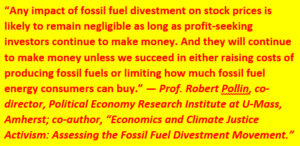
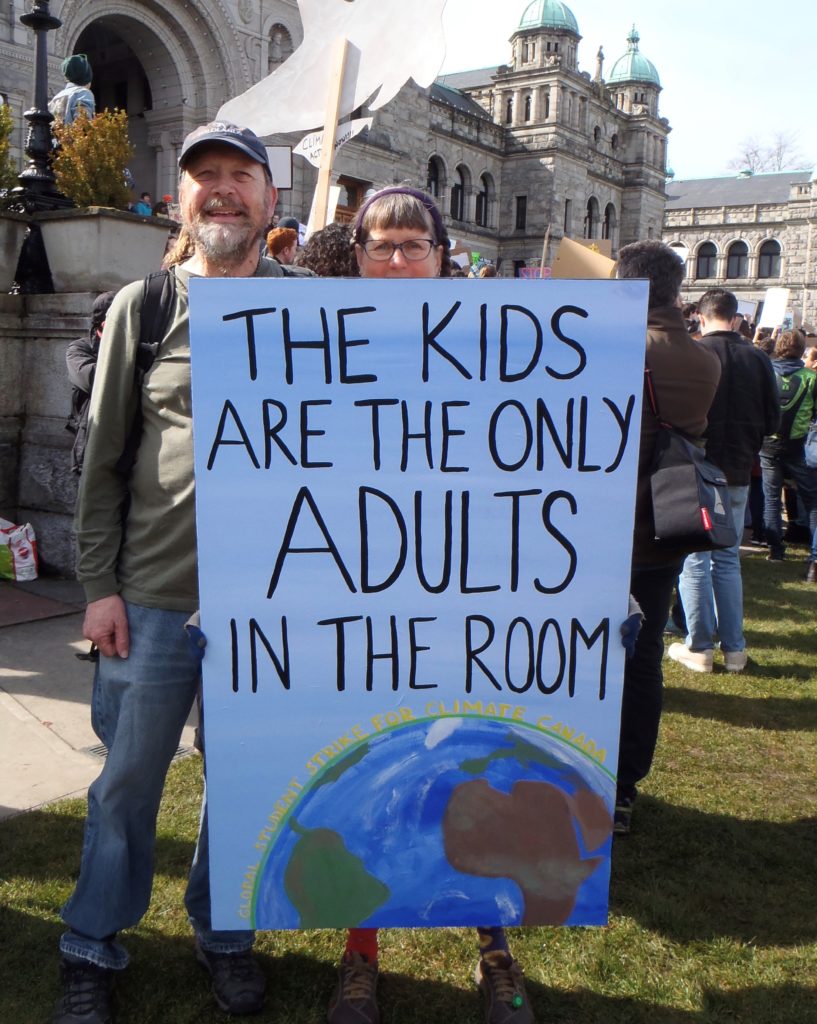

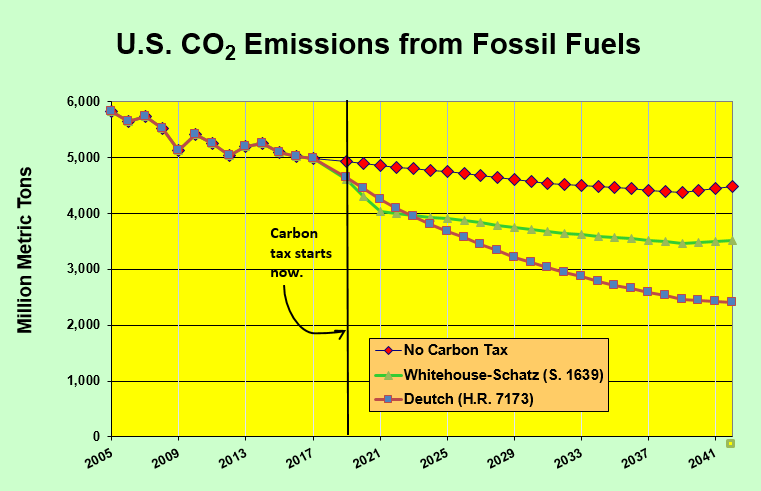


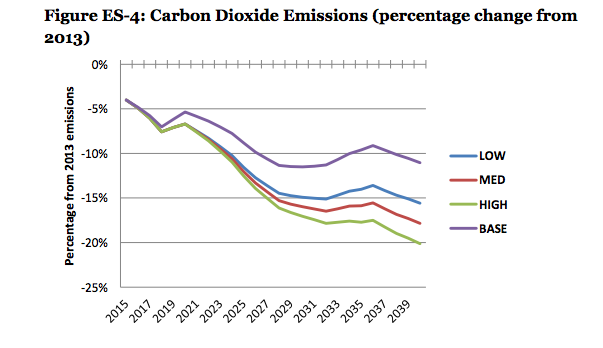
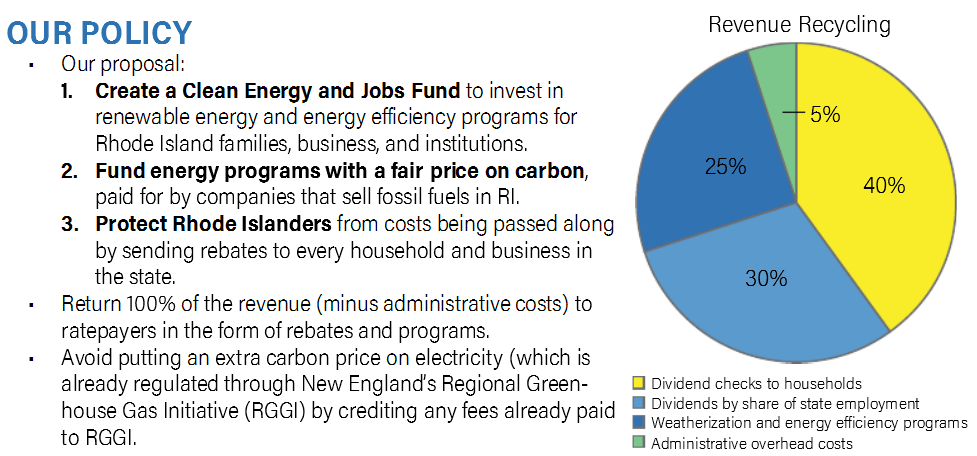
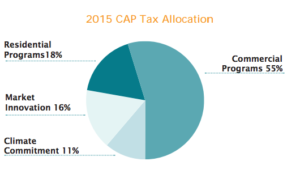
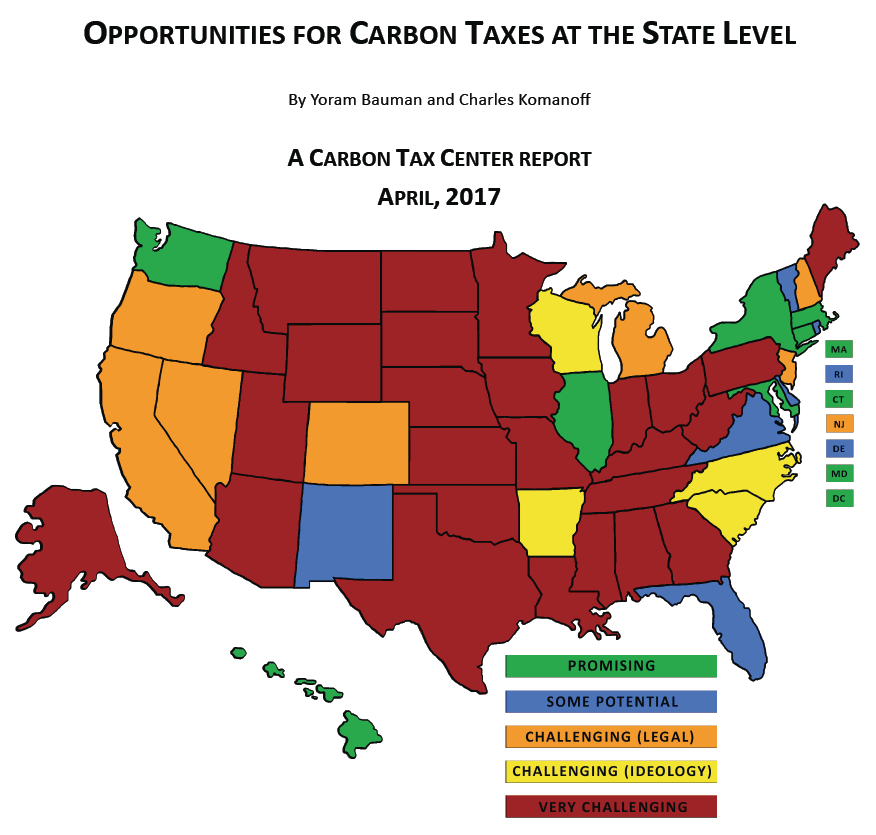
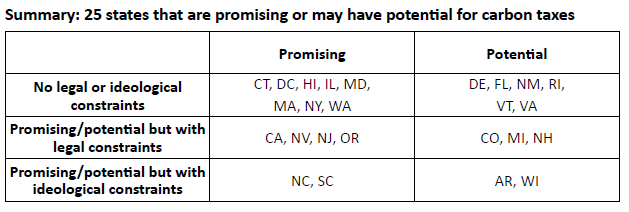
 With a national carbon tax blocked by the denialist Republican majority in Congress and a carbon-besotted White House, a growing number of climate advocates are heeding Justice Brandeis’s advice and are organizing at the state level. “Retail” politics, it is thought, might assuage concerns over outside-the-box ideas like carbon taxing, perhaps as occurred in the successful push for marriage equality (the right to same-sex marriage) which began and spread as state-level campaigns.
With a national carbon tax blocked by the denialist Republican majority in Congress and a carbon-besotted White House, a growing number of climate advocates are heeding Justice Brandeis’s advice and are organizing at the state level. “Retail” politics, it is thought, might assuage concerns over outside-the-box ideas like carbon taxing, perhaps as occurred in the successful push for marriage equality (the right to same-sex marriage) which began and spread as state-level campaigns.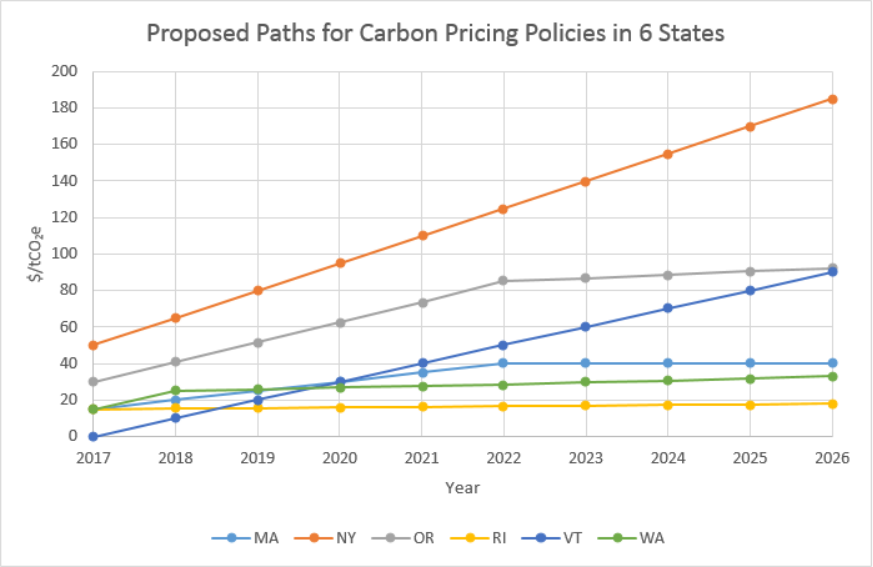
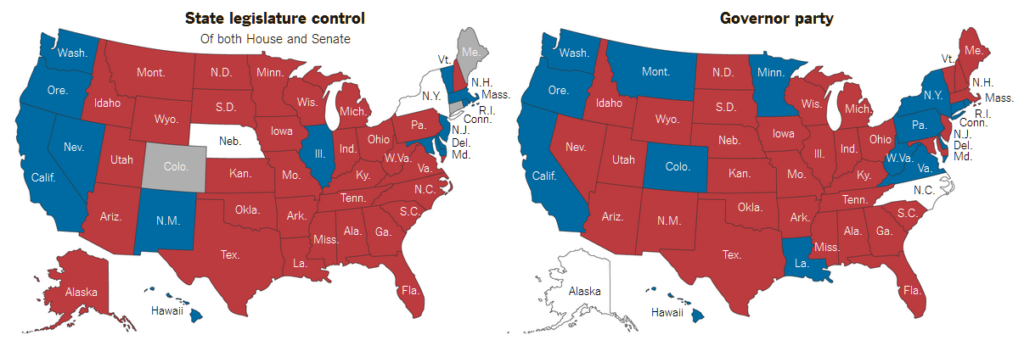
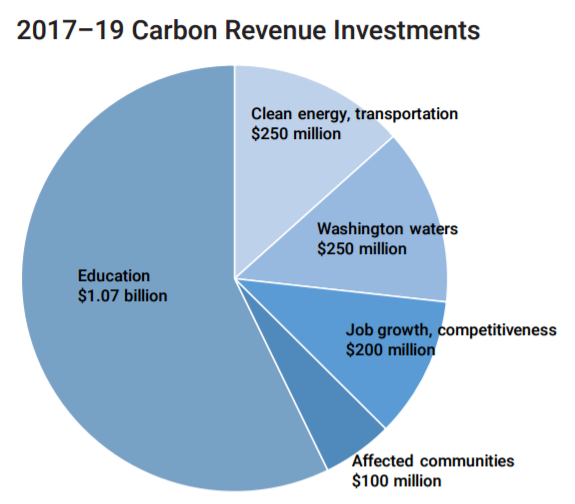
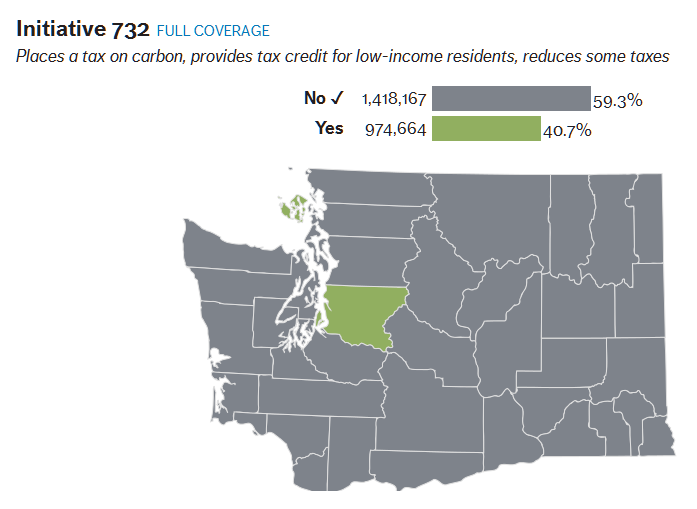
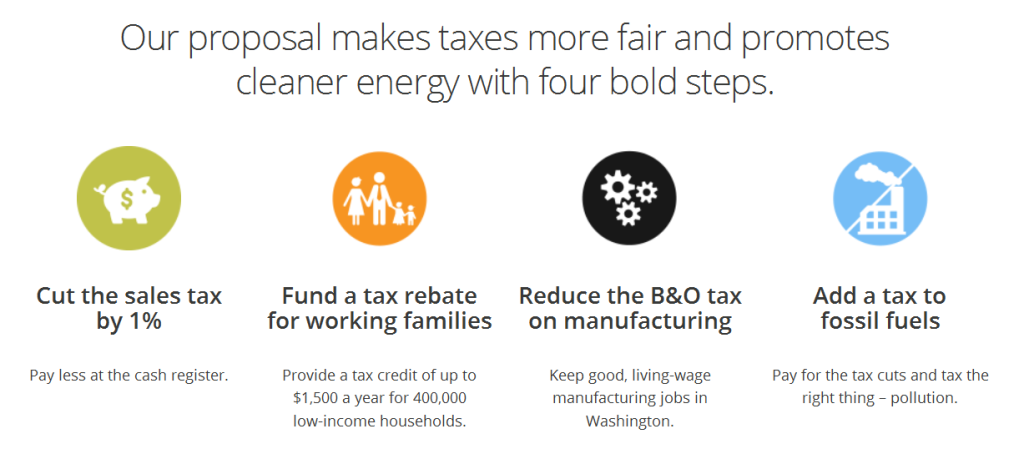
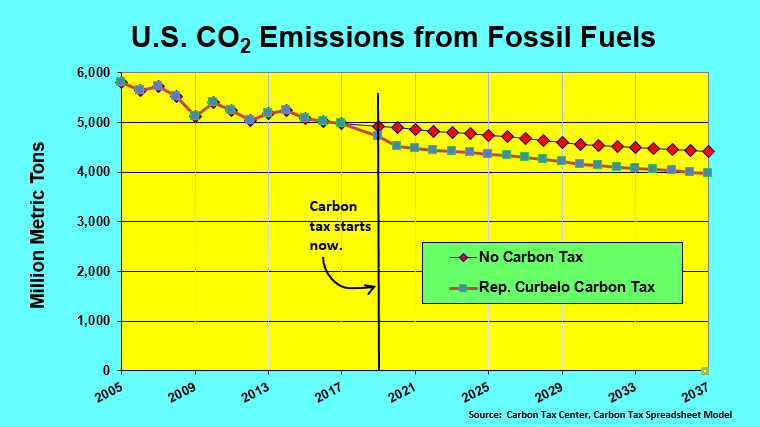
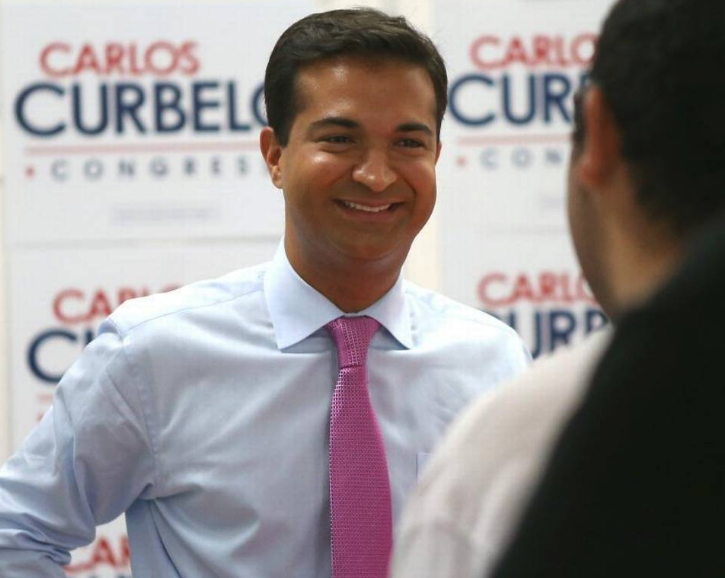
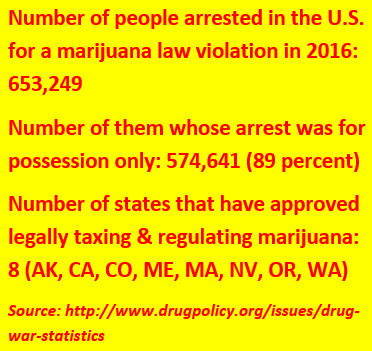 Although you wouldn’t know it, thanks to a near-century of Washington scare tactics, smokeable marijuana is one of the world’s most benign inebriants. As Lynn Zimmer, a sociologist at Queens College, and John P. Morgan, a professor of pharmacology at the City University of New York, showed twenty years ago in “
Although you wouldn’t know it, thanks to a near-century of Washington scare tactics, smokeable marijuana is one of the world’s most benign inebriants. As Lynn Zimmer, a sociologist at Queens College, and John P. Morgan, a professor of pharmacology at the City University of New York, showed twenty years ago in “